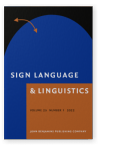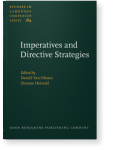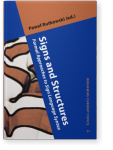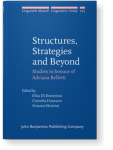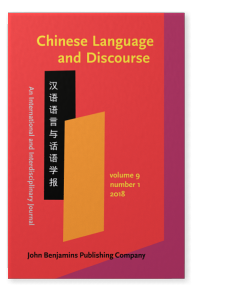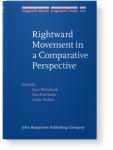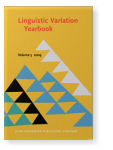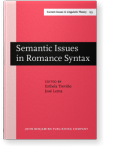Carlo Cecchetto
List of John Benjamins publications for which Carlo Cecchetto plays a role.
2022 Age of exposure and subject/object asymmetries when wh -movement goes rightward: The case of LIS interrogatives Sign Language & Linguistics 25:1, pp. 1–29 | Article
We report an experiment addressing the comprehension of LIS interrogatives in three adult populations with different times of exposure to sign language: native signers, early signers, and late signers. We investigate whether delayed exposure to language affects comprehension of interrogatives… read more
2017 Searching for imperatives in European sign languages Imperatives and Directive Strategies, Van Olmen, Daniël and Simone Heinold (eds.), pp. 111–156 | Chapter
This article presents the first results of a pilot project aiming at analyzing how European sign languages realize a syntactic domain that is very solid, likely to be grammaticalized in any language but very poorly described or not described at all for sign languages: the imperative. Our… read more
2015 WH-duplication in Italian Sign Language (LIS) Signs and Structures: Formal Approaches to Sign Language Syntax, Rutkowski, Paweł (ed.), pp. 39–70 | Article
This paper focuses on those WH-questions in Italian Sign Language (LIS) featuring two lexically identical WH-signs. We show that WH1 (the first WH in linear order) is shorter than WH2 (the second WH in liner order). However, there is evidence that this different duration is due to a phrase final… read more
2015 Subject intervention in free relatives Structures, Strategies and Beyond: Studies in honour of Adriana Belletti, Di Domenico, Elisa, Cornelia Hamann and Simona Matteini (eds.), pp. 369–392 | Article
Subject intervention in wh-questions has been reported for several Romance varieties. The case we focus on here is free relatives. In Italian/French an object free relative introduced by chi/qui is degraded if a preverbal subject intervenes, much like the corresponding wh-question. However,… read more
2013 wh-duplication in Italian Sign Language (LIS) Sign Language Syntax from a Formal Perspective: Selected Papers from the 2012 Warsaw FEAST, Rutkowski, Paweł (ed.), pp. 157–188 | Article
This paper focuses on those wh-questions in Italian Sign Language (LIS) featuring two lexically identical wh-signs. We show that wh1 (the first wh in linear order) is shorter than wh2 (the second wh in liner order). However, there is evidence that this different duration is due to a phrase-final… read more
2013 Neglected cases of rightward movement: When wh-phrases and negative quantifiers go to the right Rightward Movement in a Comparative Perspective, Webelhuth, Gert, Manfred Sailer and Heike Walker (eds.), pp. 211–242 | Article
We show that sign languages admit genuine cases of rightward movement in the domain of wh-phrases and negative quantifiers, instantiating the mirror image of spoken languages in which wh-phrases and negative quantifiers overtly move leftward. The pattern emerging from Italian Sign Language (LIS),… read more
2005 Reconstruction in relative clauses and the copy theory of traces* Linguistic Variation Yearbook 2005, Pica, Pierre, Johan Rooryck and Jeroen van Craenenbroeck (eds.), pp. 5–35 | Article
In this paper, after discussing the status of the copy theory of traces in the current formulation of the minimalist program and the evidence for the “No-Tampering” Condition from which the copy theory of traces follows, I focus on a specific case study, namely reconstruction effects concerning the… read more
1999 Without expletive replacement? Semantic Issues in Romance Syntax, Treviño, Esthela and José Lema (eds.), pp. 21–38 | Article
